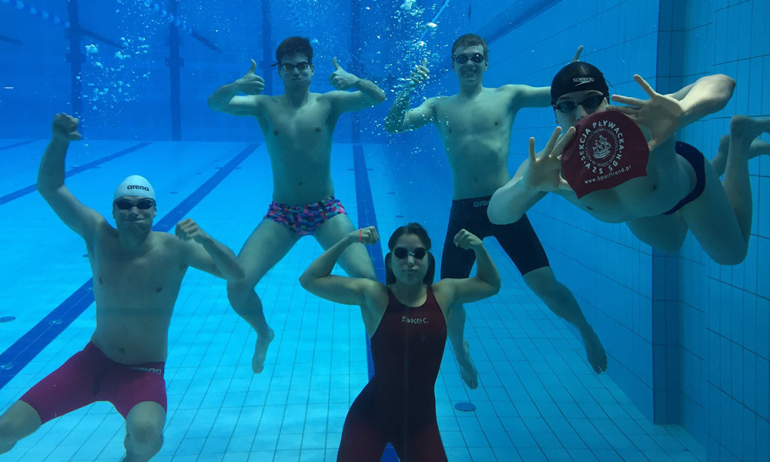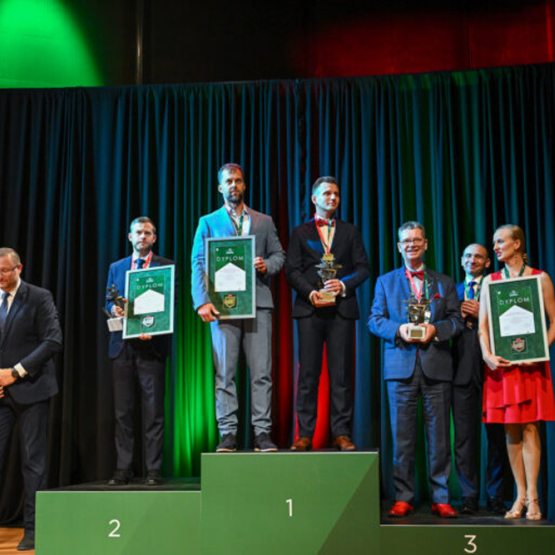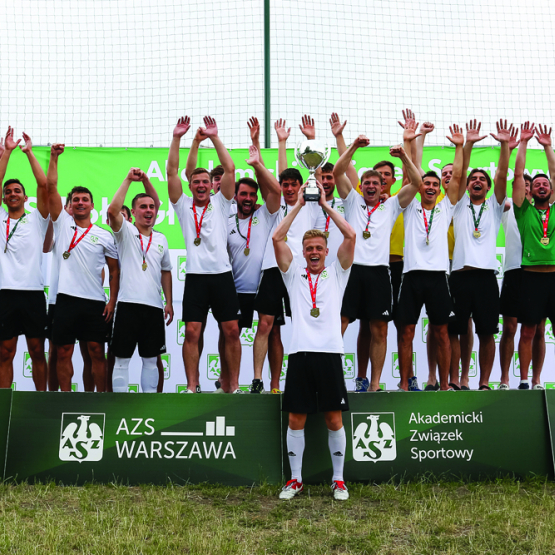
Renowned universities worldwide are famous for their research achievements, well-known scientists, outstanding discoveries and excellent opportunities they create for athletes. The history of sports is inextricably linked to the academic environment. Sports also play a significant role at the SGH Warsaw School of Economics. For instance, in the recruitment process for Bachelor studies, you can receive points for sports achievements. We also participate in ministerial programmes supporting sports at universities and promoting a dual career for athletes. All key activities at SGH in the field of sport or physical activity in general can be summarised in three areas.
On the one hand, there are sports competitions within the structures of the Academic Sports Association. SGH students participate in over 30 sports disciplines, often winning top positions in the general or socio-natural sciences classification. The most outstanding representatives of SGH bring medals from international competitions, including the Universiade. We also had our representatives at each of the last three Olympic Games, and among our graduates, we can boast medalists of the European, World and Olympic Championships. The best SGH athletes are granted awards at the SGH Sports Gala every year. We can also find athletes among the winners of the medal for meritorious service to the SGH Warsaw School of Economics. These are multi-medalists: Ewa Kłobukowska, Grażyna Rabsztyn and Teresa Sukniewicz-Kleiber.
However, sports are not only about competition; they are an integral part of student life and an element of the study programme at the Bachelor level. Physical education classes offer a range of sports disciplines, from basketball, football, and volleyball, to gym, aerobics, and yoga, to tennis, swimming and sailing. SGH has a well-developed sports culture that encourages students to participate in physical activities regardless of their skill level. In addition to the obligation to participate in physical education classes for first-year students, they are also available to every student, emphasising full inclusiveness and openness to people with special needs at every step. It is worth focusing on the goal of physical education classes at SGH, which is entirely consistent with the academic idea. Improving motor skills is secondary at this development stage young people. Classes are intended to help students learn systematicity and show the ability to balance the needs of the body and mind. Also, they are meant to make students aware of the need for self-discipline and care for one’s health throughout life. However, it is the social responsibility that is a key to university physical education. While it is difficult to convince people discouraged from this form of self-fulfillment and development to increase their physical activity significantly, this area of life cannot be ignored in building student bonds and interpersonal relationships. This is particularly important in the first year of studies, a leap between high school and adulthood. A perfect example of such classes is ballroom dancing, one of the most popular and frequently chosen subjects among all physical education classes. Establishing contacts at this stage facilitates subsequent semesters of study among different groups of people attending classes selected according to the preferences of each student. SGH must pay close attention to the holistic development of the graduates’ figures in shaping leaders. Meanwhile, the knowledge transferred during physical education classes bears fruit in later contacts at work, especially in the business world. Here, we find a close analogy with building relationships with the customer, which in simple terms comes down to creating and maintaining long-term interactions between a company and its customers.
Shaping pro-social attitudes and promoting physical activity increases the chances of introducing positive changes in a broader social context. Such an impact on society fits perfectly into the mission of SGH. The third area of physical activity in SGH is striving for greater social integration by organising cultural and sports events available to people from different backgrounds, regardless of their physical condition or social status. Many such events have become a permanent part of the SGH calendar. These include sailing regattas, the SGH run, or strongman, indoor football and streetball tournaments. There is no shortage of non-cyclical events for an international group of participants. One such event was the CIVICA Sport and Culture Festival organised on Lake Zegrze in 2024, which allowed for the active integration of over 250 people from 10 different universities in the CIVICA consortium. The idea, goals and implications of the festival were perfectly summed up by CIVICA Executive Director Aurélien Krejbich: “While CIVICA is focusing primarily on education and research, holding events in an informal setting and facilitating interactions across our communities around sports and culture contribute greatly to the building of a common sense of belonging and allow new connections that ultimately lead to new projects or initiatives.”
In addition to sports and cultural events or strictly sports events, SGH places a large part of its involvement in activities that constitute the essence of the university’s existence, namely scientific research. Members of the SGH community often present the results of their research in the broadly understood area of sports in debates or scientific conferences. These include, for example, the applications of artificial intelligence in sports frequently considered now, the role of physical activity in society for the state, but also various aspects of financing sports. In January this year, SGH also hosted the first conference in Poland addressing the subject of sports in the economic dimension, i.e. its financing and management. It was a response to the concept of sports in the context of demographic and geopolitical conditions, as well as changes in the system of human values and the prioritisation of various areas of life. The conference topics primarily concerned the role and importance of public and commercial funds in financing sports, contemporary trends in sports management and through sports, as well as the social dimension of physical culture. The conference was held in three panels led by scientists, sports activists, and representatives of businesses supporting sports. Like many SGH initiatives, this one also met with great interest, and the participants and discussants were representatives of various environments: clubs, sports associations and organisations, sports and athletes associations, scientific institutions, ministries, as well as journalists, social activists and sponsors.
Sport has been an inseparable part of every community life. It is also an essential aspect of SGH activities and interests in theory, research, and pure practice. For many years, we have been involved and have achieved many successes in each of these fields. We also have ambitious plans for the future. Still, the central point of these plans is physical activity and promoting a healthy lifestyle throughout the academic community.
Habilitated Doctor MICHAŁ BERNARDELLI, Professor at SGH, Head of Physical Education and Sport Center, Probabilistic Methods Unit, Collegium of Economic Analysis, SGH
PHOTO: Training of the swimming section of AZS SGH (Academic Sports Association of SGH). SWIMMING SECTION'S ARCHIVE



